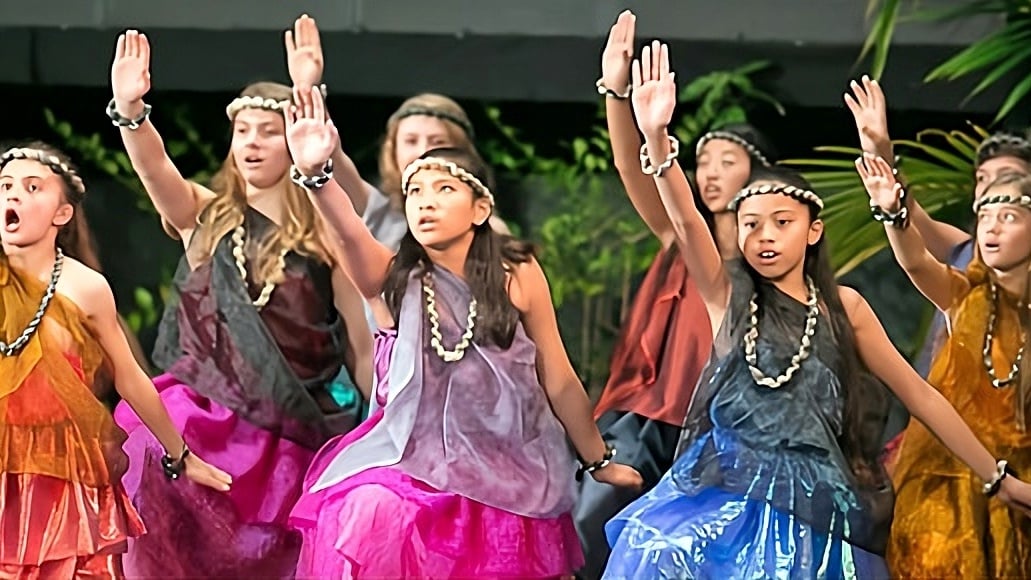For decades, Hawaii has been marketed as the ultimate luxury escape. Oceanfront resorts, infinity pools, and golf courses carved into lava rock (think Big Island) became icons of status and success for generations of visitors.
Today, however, the definition of luxury travel is being rewritten. Around the world, travelers are shifting away from superficial indulgence and toward experiences grounded in authenticity, culture, and genuine connection. Hawaii is not only well-positioned to deliver this shift, but it may also be the very place where the new era of luxury can best be defined.
From surface luxury to Hawaii’s deeper connections.
Across the globe, the once-glossy travel experiences that symbolized prestige are losing their shine. The all-inclusive vacation in Mexico, the overwater bungalow in the Maldives, and the influencer villa in Bali still look impressive online, but many travelers admit the reality often falls short of expectations. Buffets, staged shows, and postcard-perfect settings can initially impress, yet the sense of connection quickly fades once the novelty wears off.
Researchers describe this change as the transition from hedonic pleasure, characterized by brief bursts of enjoyment, to eudaimonic pleasure, which is the kind of meaning that lingers long after the experience is over.
For today’s traveler, authentic conversations, immersion in local rhythms, and cultural depth are valued far more than unlimited cocktails or luxury branding. Hawaii has always embodied these elements through its people, landscapes, and traditions. The difference now is that the rest of the world is finally catching up to what Hawaii has been offering all along.
Hawaii’s all-inclusive advantage.
Unlike many resort destinations, Hawaii has never fully adopted the all-inclusive model. Visitors book rooms, but meals, activities, and exploration happen outside the hotel. That structure naturally encouraged discovery and engagement with communities across the islands. Long before words like “experiential” or “immersive” became travel industry buzzwords, Hawaii was already delivering them.
This is now seen as one of Hawaii’s greatest advantages. Travelers who want to shop at farmers’ markets, try local restaurants, and find hidden beaches quickly realize Hawaii cannot be reduced to a buffet line. Even with the higher costs and systems that sometimes frustrate, the islands remain an open invitation to explore. In a travel world eager for meaning, that invitation is becoming more valuable than ever.
Hawaii’s new luxury: connection over exclusivity.
For years, Hawaii’s luxury resorts on Lanai, Maui, and the Kohala Coast marketed exclusivity as the ultimate prize. Staying there was a status symbol, and for many it still is. Yet the definition of luxury has shifted. Guests now say that while they enjoy world-class service, they also want to connect with something more lasting. They want to hear stories, participate in traditions, and feel Hawaii rather than simply consume it.
Hawaii makes this possible in ways that other destinations struggle to match. Visitors can take part in hula workshops, explore the history of the Ali‘i at the Bishop Museum in Honolulu, or attend the Merrie Monarch Festival in Hilo, widely regarded as the Olympics of hula. As the state’s official tourism website points out, cultural events and traditions are among the most rewarding ways to experience the islands. Exclusivity is giving way to something far richer: the luxury of genuine connection.
Cruises versus deeper Hawaii.
Cruises remain popular, but more travelers are realizing that quick stopovers do not allow enough time to connect with Hawaii. Mega-ships bring thousands of passengers who see only a glimpse before sailing away. While that may check Hawaii off a list, it rarely leaves a lasting impression.
By contrast, visitors who spend a week or more on a single island often describe their trips as transformative. They notice the slower rhythms of daily life, return to favorite spots year after year, and build relationships that draw them back again and again.
Some discover traditions through community festivals they happened upon, while others join guided cultural tours that connect them to stories of the land and sea. Unlike destinations designed for short stays, Hawaii rewards those who take the time to linger. The longer a traveler stays, the more meaningful the experience becomes.
Hawaii’s magic: beyond the bucket list.
For many, Hawaii begins as a bucket-list trip filled with iconic stops, such as Pearl Harbor, Waikiki, Hanauma Bay, and the Road to Hana. These places are unforgettable, but the true magic emerges when visitors return. Over time, the trip shifts from checking boxes to forming bonds, whether it is through staying in the same family-run condo, returning to a beloved café, or seeing familiar faces at a local market.
That sense of familiarity is the new luxury. Hawaii does not need to reinvent itself to meet this shift. It only needs to highlight the long-term connections and loyalty that have always been part of the islands’ story. In many ways, Hawaii has been practicing meaningful luxury long before the travel industry knew what to call it.
Waikiki and the balance of spectacle.
Waikiki is often compared to Las Vegas in flip-flops, with its neon lights, shopping malls, and nonstop energy. For some, that spectacle is part of the fun, especially on a first visit. Yet even in Waikiki, Hawaii, it has something Vegas cannot match. Just beyond the bustle are historic sites like ‘Iolani Palace, cultural touchpoints such as the Royal Hawaiian Band concerts at Kapi‘olani Park, and quiet stretches of sand where visitors can pause and reconnect.
The challenge is finding balance. Waikiki can be a gateway that introduces travelers to the islands’ culture and beauty rather than a distraction that overshadows them. Done right, it becomes a starting point for more profound discovery rather than the entire story.
The opportunity ahead.
Readers often remind us that Hawaii’s magic lies in connection rather than transactions. They share stories of bonding at small-town markets, learning through cultural festivals, or finding peace on a quiet beach at sunrise. These are the moments that stay with them long after their flights home.
For example, visitors debating where to go often reference Hawaii’s Best Island: Why Travelers Are Split in 2025 when they ask whether choosing Maui, Kauai, or the Big Island really changes the travel experience.
Hawaii already has what the world is searching for. The opportunity now is to nurture those strengths. Investment in beaches, parks, and trails demonstrates to visitors that they are valued and cared for. Support for cultural events like the Aloha Festivals, which celebrate Hawaiian music and hula across multiple islands, provides experiences that cannot be replicated elsewhere. Recognizing repeat visitors and celebrating their loyalty reinforces the value of familiarity. In each of these areas, Hawaii is poised to lead the new era of luxury travel.
The bottom line.
Luxury travel has changed. It is no longer measured by infinity pools or champagne breakfasts but by authenticity, connection, and depth. Hawaii has all the raw ingredients to define this new era better than any other destination. Far from missing the shift, Hawaii stands at the center of it, ready to show the world that true luxury is not about exclusivity, but about belonging.
Have you found your authentic Hawaii? If so, what made it unforgettable?
Get Breaking Hawaii Travel News







Let’s be real Hawaii, people come for sandy beaches, warm water and tropical breezes.
When surrounded by multinational hotels, Costco, Target, fleets of rental Jeeps, locals speeding around in their Tacomas, local stations blasting music “Hawaiians” appropriated from Jamaica, where “local” fare tends to be foods from or a fusion of other cultural treats and foods, and where there are more non-Hawaiians on Maui and Oahu….this idea that there is anything “authentic” about something that has been completely manufactured is laughable.
The big hotels are doing their big performative cultural mea culpas on the front end while doing everything in their power to undermine actual cultural norms, practices or activities on the back end. Want “authentic” Hawaii? Go to Molokai where every person side eyes you and looks forward to your departure (after dropping no less than $10k into their economy, of course). That’s what has become “authentic” Hawaii.
For once in my life, I’m a “trend setter”! I have sought out the “real Hawaii”, ever since I first visited as a 13-year in 1963. In all the years we have come to Hawaii (11 times), we have stayed exactly TWO nights in a resort hotel.
We stay away from the “glitzy” attractions, feel happiest in small towns, small shops, back roads and farmers markets. I have some “history” and like it especially when I run into old friends. As an example, we have stayed in an old plantation house with no electricity and battery-powered lights, but a dynamite view of a nearby valley and Few people.
When I get asked by friends what to do in Hawaii, staying in resorts and frequenting Waikiki (and for that matter, Honolulu) is Not mentioned!
Enjoying a cultural experience should begin in Waikiki which is often the first place that a traveler experiences. Bring back a new version of the original International Market Place first and foremost. Make sure it is filled with local artists and their products. This should include carvers, jewelry makers, clothing designers, musicians, etc. The environment should be tropical, plants, birds, flowers, etc. Create a new space where memories begin for the tourist, not one that is gone, and missed by all who remember.
I’m not convinced truly “authentic” travel can be had in Hawaii, but for sure it pays to get out of the big resorts and see the lay of the land. I enjoy luxury as much as the next person — for a maximum of 2 nights. I get claustrophobic and have to break out of the artificial protective shell pretty quickly. In a luxury accommodation, you could be anywhere in the world — they all seem very similar, with a nod here and there to where you are: leis, canoes, torches at sunset for Hawaii, poolside palapas, saltillo tiles, and bougainvillea for Mexico. I like to get out and drive, get out and walk, get out and swim, experience nature, stop at a modest place to try the food, take in the architecture, both the dramatic and the homey. We can’t really capture the essence of a place in a week or two, but you can get a deeper, more realistic impression if you venture beyond the curated experience.
A frustration I have is the event calendar for an island – not much shows up until the month before. It would be great to see the annual dates a year in advance so one could make plans around festival and authentic experiences.
Yes, I can stumble across something like a food drive in the parking lot of Longs Drugs + sit on the tailgate of a local’s truck to listen to local artists + watch the keiki halau.
But a calendar for the year would make planning great.
I have a different take…the big hotels are a one stop plan. They have everything you need. take for example Aulani: Rooms, restaurants, shops, pools, the beach, spa’s, entertainment, they offer excursions. So why would you leave? Resorts only make money if it stays on site. That is what the Japanese did years ago with the hotels they built, all the trip was prepaid in Japan so the only money spent on the islands was for trinkets. Anywhere in the world I’ve gone, rent something local and explore low key, make no demands and talk with the local people…even when the language is different (that’s what hands are for) and now with the translators on phones, how simple.. Ask questions, recommendations. And above all research the area before you even plan your trip. Know the things you might want to do or see but leave yourself open. Be kind, leave no trace but happy memories.
I never understood this “authentic” travel trend.
You want an authentic Hawaiian experience? Stay home, work three jobs that you hate and pay crap, eat large amounts of rice, spam, and any other cheap food, then give your landlord twice the amount of rent you normally do.
There, authentic Hawaii.
I don’t come here to hang out where the locals do cause I know they’re hanging out there to get away from me.
I like the commercialized experience because it’s been tailor made to appeal to me. The clean streets, the homeless being herded away, the dredged out beach that’s free of sharp coral, sharks, and who knows what else. I love it.
Off subject, but PGA just announced that due to drought and poor course condition it has canceled The Sentry at the Plantation Course at Kapalua golf. It’s been reported that that annually the Sentry brings in 50 million dollars to Maui’s economy. The hits just keep coming.
The course is dying because we love to fight about water.
Maui has the second wettest place on earth and we *could* use a small fraction of the billions brought in by tourism to build some infrastructure to alleviate the water crisis. Naw… That”ll never work…..
The truth: the only “genuine connection” Hawaii tourism cares about is “connecting” to visitors’ bank accounts.
Tourists most certainly will experience the “guaranteed magic” of Hawaiian politicians’ tax extraction: TAT taxes, car rental fees and taxes, so-called “green” fees, state park fees, cruise passenger fees, and general excise and sales taxes.
The “bottom line”: many of these visitor fees and taxes are among the highest on the planet, as has been noted by scores of media organizations.
Not necessarily true, Jack.
As a retired farmer-turned-artist who sells his images at local pop-up markets, find that visitors are somewhat put off by meeting local residents and considering their wares. I happily engage with tourists who express interest in my work, whether they buy or not. I enjoy meeting most more than they appear to enjoy meeting me. Those who meet me head-on have the most to share and I respond with travel tips and empathy about the cost of their vacation.
I am constantly surprised to see tourists dressed in outfits that scream “I live elsewhere” . I offer my original, Hawaii-based, images on t-shirts for $30, 2 for $55, and 3 for $75. Half of my sales go to local residents, the other half to visitors who take the time to slow down and drink in the authenticity.
Am i interested in “connecting to visitors’ bank accounts”? Sure, in my own small way. But the appreciation I exude connects with their soul, whether I close the sale or not…